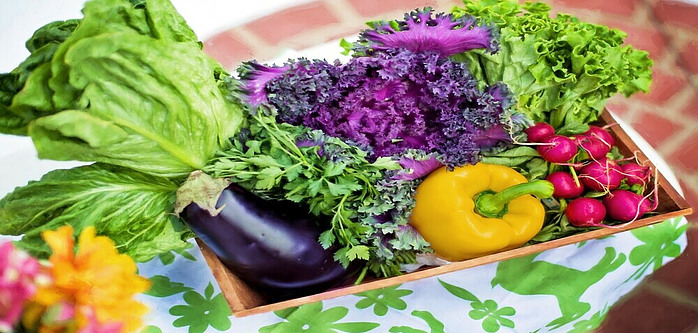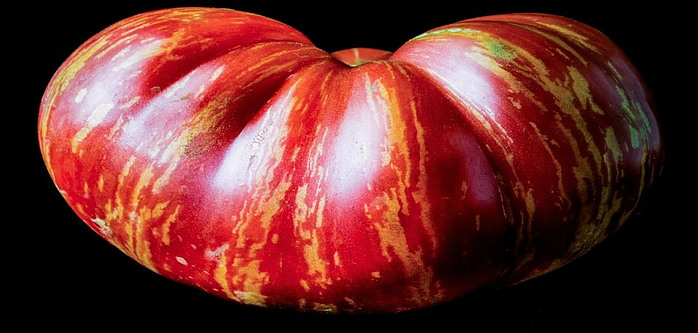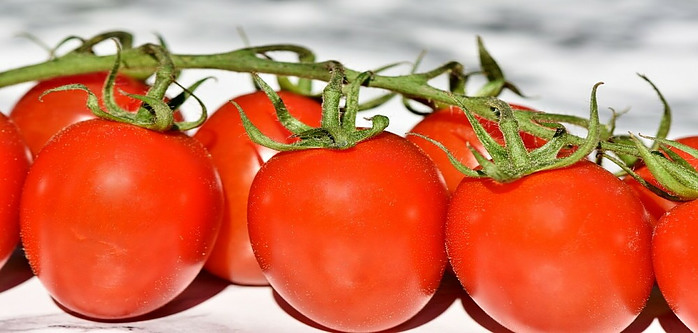 When it comes to growing your own vegetables, the choices can be overwhelming. In today’s world of agriculture, three main categories stand out: heirloom, hybrid, and GMO (Genetically Modified Organism) vegetables. Each type has its own unique characteristics and implications for your garden. In this blog post, we’ll explore the differences between these three and help you decide which might be the best fit for your gardening goals.
When it comes to growing your own vegetables, the choices can be overwhelming. In today’s world of agriculture, three main categories stand out: heirloom, hybrid, and GMO (Genetically Modified Organism) vegetables. Each type has its own unique characteristics and implications for your garden. In this blog post, we’ll explore the differences between these three and help you decide which might be the best fit for your gardening goals.
Heirloom Vegetables: Preserving the Past
Heirloom vegetables are like living time capsules, preserving the flavors, shapes, and histories of earlier generations. These varieties have been passed down through generations, often saved for their exceptional taste and unique traits. Heirlooms are open-pollinated, which means they are pollinated by natural mechanisms like wind, insects, or birds. This natural pollination process leads to relatively stable and predictable offspring, making them a favorite among gardeners who love tradition and the thrill of growing something with a story.
One of the most appealing aspects of heirloom vegetables is their rich, diverse flavors. When you sink your teeth into a ripe, homegrown heirloom tomato, the taste is incomparable. Most people notice that tomatoes picked from their backyard taste significantly better than those bought in the supermarket. This flavor difference is becausethrough the heirloom vegetables have the opportunity to fully ripen on the plant, allowing their sugars to develop fully. It’s an experience that can convert even the staunchest supermarket produce buyers into home garden enthusiasts.

Beyond their extraordinary flavors, heirloom vegetables offer a vast array of varieties that you won’t typically find on store shelves. While commercial stores tend to stock vegetables they believe will sell well, your garden choices are virtually limitless. Fancy purple carrots, striped zucchinis, or the intriguingly smoky-flavored black tomatoes are just a few examples of the exotic heirloom varieties you can grow. By planting heirloom seeds, you become a guardian of biodiversity, helping to preserve these unique and often rare vegetable varieties for future generations.
In essence, growing heirloom vegetables not only fills your plate with exquisite flavors but also connects you to the rich tapestry of gardening history, where every vegetable tells a story of its own.
Hybrid Vegetables: The Best of Both Worlds
Hybrid vegetables offer a different approach to gardening, focusing on the best of both worlds through theproduct careful crossbreeding of two parent plants with specific desirable traits. These traits might include increased resistance to diseases, higher yields, or other advantageous characteristics. The result is a new generation of vegetables with the potential to thrive in various conditions, but they come with a set of unique qualities and considerations.
One of the notable characteristics of hybrid vegetables is their durability for transport, which is crucial for commercial agriculture. Unlike heirloom varieties that are often picked at the peak of ripeness for flavor, hybrid vegetables are typically harvested before they fully ripen. This early picking allows them to withstand the rigors of transportation to the supermarket, but it comes at the cost of flavor. Many people have noticed that store-bought hybrid vegetables, like tomatoes, often lack the deliciousness of their homegrown counterparts. This is because they haven’t had the chance to develop their full flavor potential on the plant.
While hybrid vegetables may not offer the same flavor explosion as heirlooms, they have their own set of advantages. They often boast thicker skins, which is ideal for withstanding the handling and transportation required in the commercial food industry. This durability can extend the shelf life of the produce, reducing food waste.
Additionally, hybrid vegetables are selectively bred for uniformity in appearance, which can be appealing to consumers who prefer consistent sizes and shapes. However, this selective breeding sometimes means that certain varieties are optimized for commercial purposes, leading to a reduction in biodiversity. This focus on a narrow range of traits can result in fewer unique and diverse vegetables available to consumers.

Another consideration is that while hybrids are bred for specific characteristics, they may lose some nutritional content in the process. The emphasis on traits like disease resistance and uniform appearance can sometimes come at the expense of nutritional density. So, while hybrid vegetables can be a reliable and consistent choice, they might not be the best option for those seeking maximum nutritional value from their garden harvest.
Thus, hybrid vegetables strike a balance between durability, consistency, and certain desirable traits. They are a practical choice for commercial agriculture but may not provide the same depth of flavor and nutritional richness as heirlooms. Gardeners who prioritize reliability and appearance may find hybrids to be the best fit for their needs.
GMO Vegetables: Science in the Garden
GMO vegetables represent a fascinating frontier in agriculture, harnessing genetic engineering to create plants with specific traits, such as resistance to pests, tolerance to herbicides, or improved nutritional profiles. While these genetically modified organisms have the potential to address certain agricultural challenges, they also raise important ethical and environmental questions.
One of the key concerns surrounding GMO vegetables is the potential long-term impact on human health. While extensive safety testing is conducted before GMO crops are approved for commercial use, some critics worry about unforeseen health consequences. The introduction of new genes into the genome of a plant could lead to unintended allergenic reactions or other health issues in consumers. Though no conclusive evidence supports these concerns, they remain a topic of ongoing debate and research.
Another significant concern is the potential for GMO crops to crossbreed with wild or non-GMO varieties, leading to unintended consequences in the ecosystem. This hybridization could result in the spread of modified genes to wild populations, potentially affecting biodiversity and ecosystem stability. It’s a complex issue that highlights the importance of careful monitoring and risk assessment.
Furthermore, the use of GMO crops often relies heavily on chemical herbicides, as many GMO varieties are engineered for herbicide tolerance. This can lead to increased herbicide use, which in turn can have detrimental effects on the environment and non-target organisms. The development of herbicide-resistant weeds, known as superweeds, poses a challenge that requires even more potent chemicals to control.
Moreover, the concentrated ownership and control of GMO seed patents by a few large corporations have raised concerns about the economic impact on small-scale farmers and the loss of traditional farming practices. The high costs associated with purchasing GMO seeds and the legal restrictions on saving and sharing seeds can limit the options for small, independent farmers.
While GMO vegetables have the potential to address some agricultural challenges, they come with a set of complex risks and concerns. These include potential health effects, ecological consequences, increased herbicide use, and socioeconomic impacts. The ongoing debate over GMOs underscores the importance of rigorous scientific research, transparent labeling, and thoughtful consideration of the potential benefits and drawbacks of this technology in our food system.
Making Your Choice: What’s Best for Your Garden?
Ultimately, the decision between heirloom, hybrid, or GMO vegetables depends on your gardening goals, values, and priorities. Here are a few things to consider:
1. Flavor and Tradition: If you’re passionate about preserving historical varieties and savoring unique flavors, heirloom vegetables may be your best bet.
2. Reliability and Yield: If you’re looking for consistent results and higher yields, hybrids could be the right choice.
3. Ethical and Environmental Concerns: If you’re concerned about the environmental impact and potential risks associated with GMOs, you may want to stick with heirloom or hybrid varieties.
4. Experimentation: Don’t be afraid to mix and match! Many gardeners enjoy trying a bit of everything to see what works best in their specific growing conditions.
In the end, growing vegetables is a deeply personal and rewarding experience. Whether you choose heirloom, hybrid, or GMO varieties, the satisfaction of nurturing your garden and harvesting your own produce is a joy that all gardeners can appreciate. So, embrace your gardening journey, experiment, and most importantly, savor the fruits (and vegetables) of your labor.

